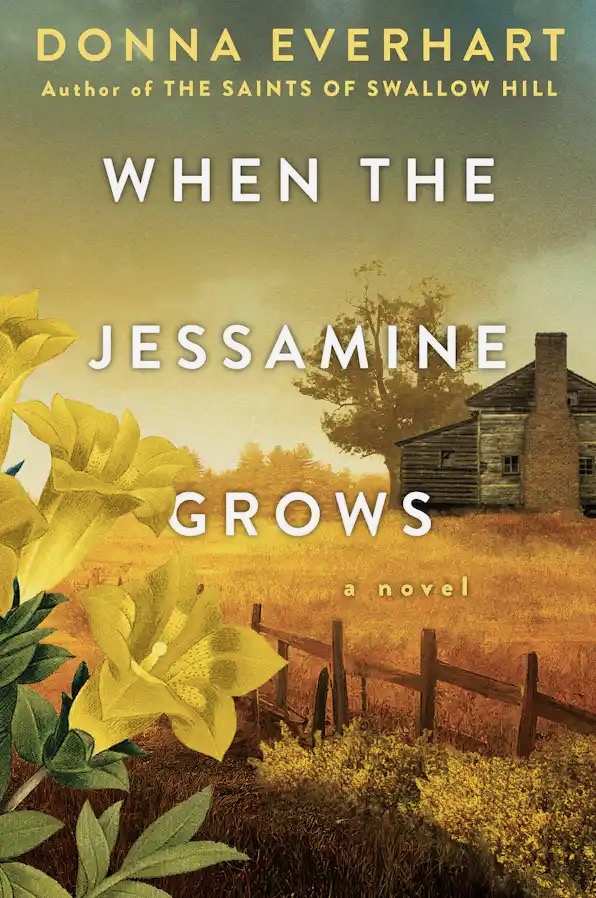Donna Everhart’s long-awaited novel When the Jessamine Grows has finally launched.
When the Jessamine Grows is set during the Civil War, but it is not a war story. Rather, it is a story about those whose fight for survival took place far from the battlefront, told from the rarely-heard perspective of a courageous Southern woman. It is a story about the impossibility of neutrality in times of war. And finally, set amidst the rugged beauty of rural 19th century North Carolina, When the Jessamine Grows is a story about a farm family and survival and standing by one’s values.

“Donna Everhart takes a complicated issue—neutrality during the Civil War—and gives an empathetic portrait of a family that tries to maintain it … compelling, harrowing at times, When the Jessamine Grows will keep you on the edge of your seat.” – Linda Hodges, Fiction Addiction (Greenville, NC)
“Historical fiction at its absolute best! Showing strength, courage and resolve in the face of the many cruelties of the Civil War, Joetta McBride is no demure southern belle. She deals with grief, starvation, and ruin. Everhart has created a new hero in the unflinching, steadfast, and ever courageous Joetta McBride.” – Sharon Davis, Book Bound Bookstore (Blairsville, GA)
“The divide of the North and South was like a great crack in the earth, a gaping maw of distrust, and the self-righteousness and determination that grew with each passing conflict only served to expand the differences. And here she dwelled, in this land divided, impartial, and nonaligned, hoping to remain thus until it was over.” – from When the Jessamine Grows





















































Early this morning I finished “When the Jessamine Grows.” In a recent NYTimes guest column titled, How to Save a Sad, Lonely, Angry, and Mean Society, David Brooks said,
“… immersing yourself in novels with complex characters … stories that explore the complexity of this character’s motivations or that character’s wounds, is a training ground for understanding human variety … the resulting knowledge is not factual knowledge but emotional knowledge.” Donna Everhart’s brilliantly crafted book does just that. Her book is important because she takes us back to another time when our nation was divided and there was rancor afoot.
I loved this essay from David Brooks and I love the way you’ve connected his insights to the experience of reading a story that immerses us in a time that feels so wildly remote from our modern lives…and yet so analogous in many ways to our present culture, when ideological divides spur conflicts everywhere from our Capitol to our dinner tables.
When war erupts, it impacts so many lives – not just those directly involved in the conflict. I’m intrigued by the description of a family trying to stay neutral and stand by their values in the midst of a civil war; I want to know more. Is it possible to stay neutral in the face of a conflict that threatens to split our country? Is it possible to stay neutral when the outcome of this war will decide the fate of slavery in our country?
You ask “Why does this book appeal to you?” Aside from the engrossing story based on a very painful time in American history, it seems I am led into moments of introspection — Would I have the inner strength to maintain my convictions and values and to pesevere under such devastating conditions? And in these privileged but tumultuous times of the 21st century, I wonder, who will write our history and will that history be kind to us?
This book really gets you thinking and realizing how much impact the war really had on everyone. There are times when my heart really breaks for the main character, but I am proud she is staying true to herself. Even though I have not finished this book, Donna has shown how much strength and work women have had to provide to keep their families and home intact. Living through that time would not have been for the faint of heart.
Just started it and already love the character of Joetta! I can’t wait to immerse myself in their story.